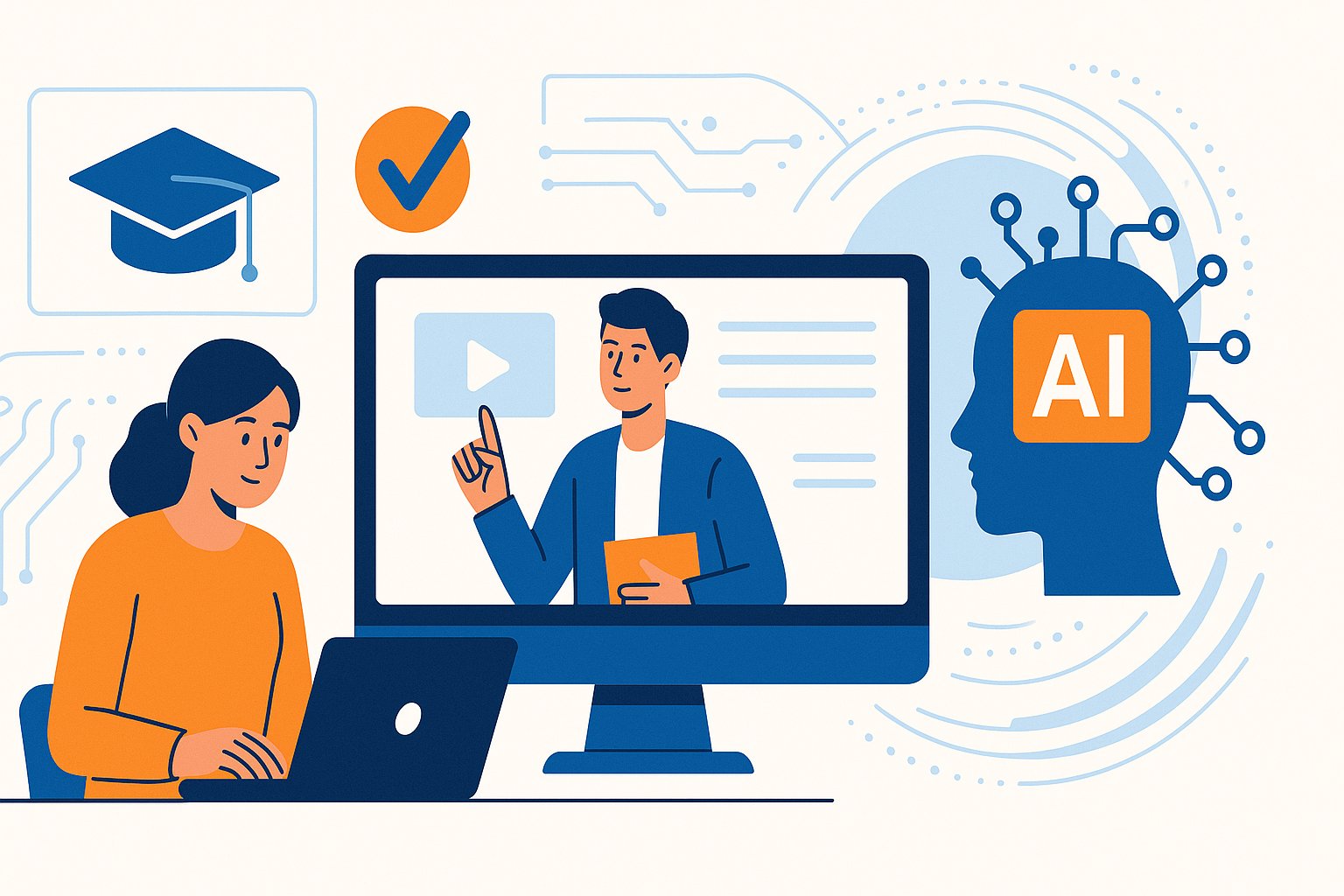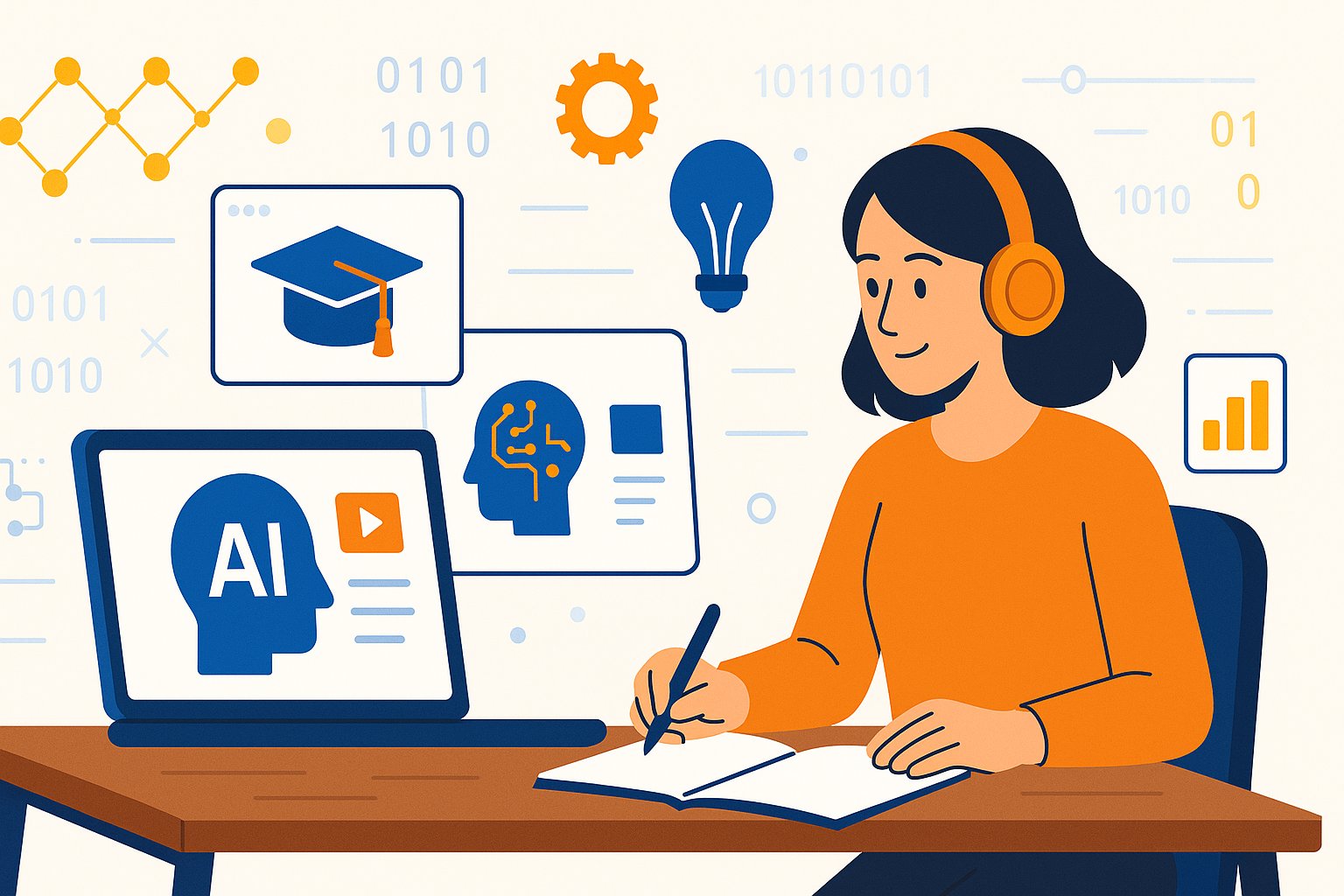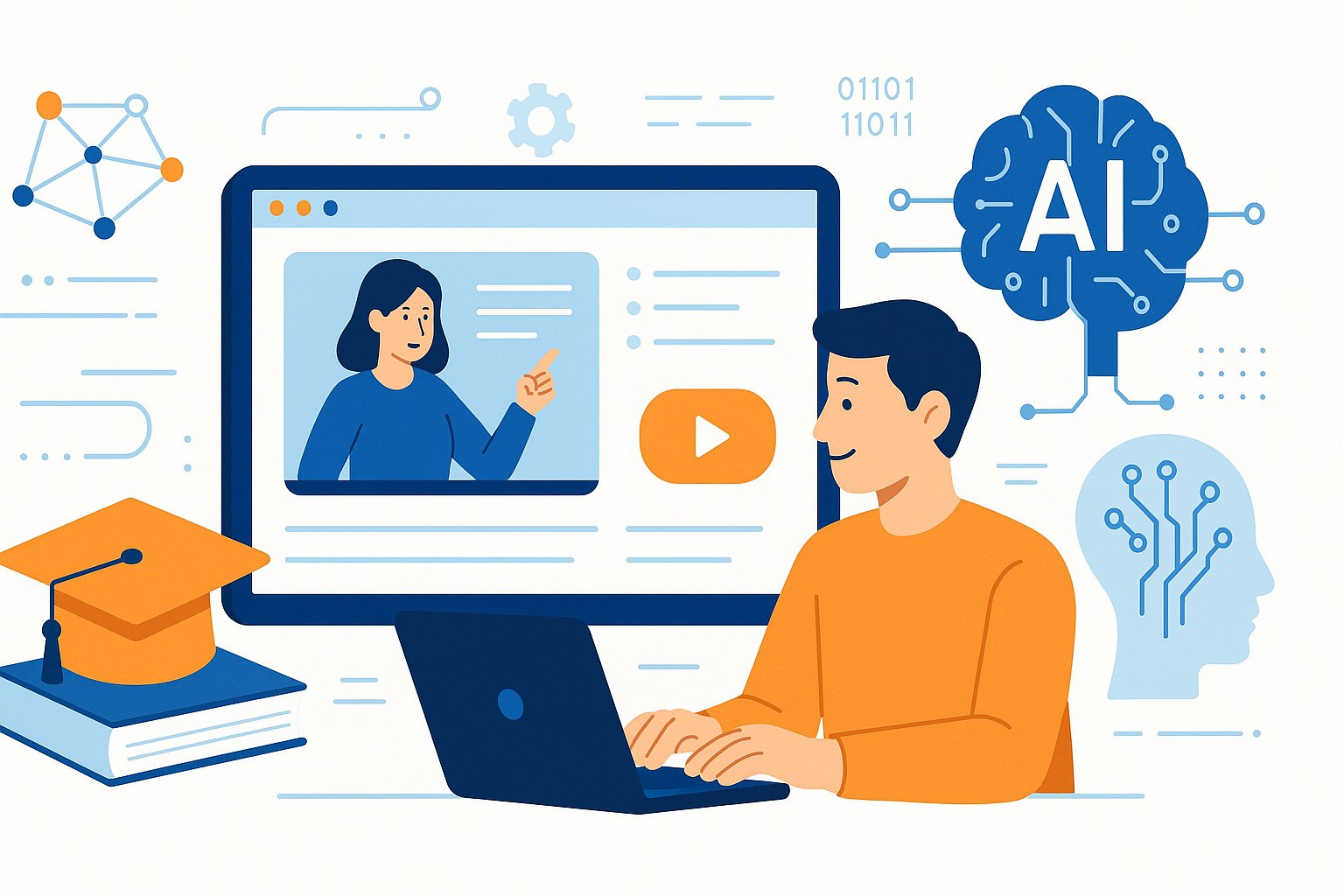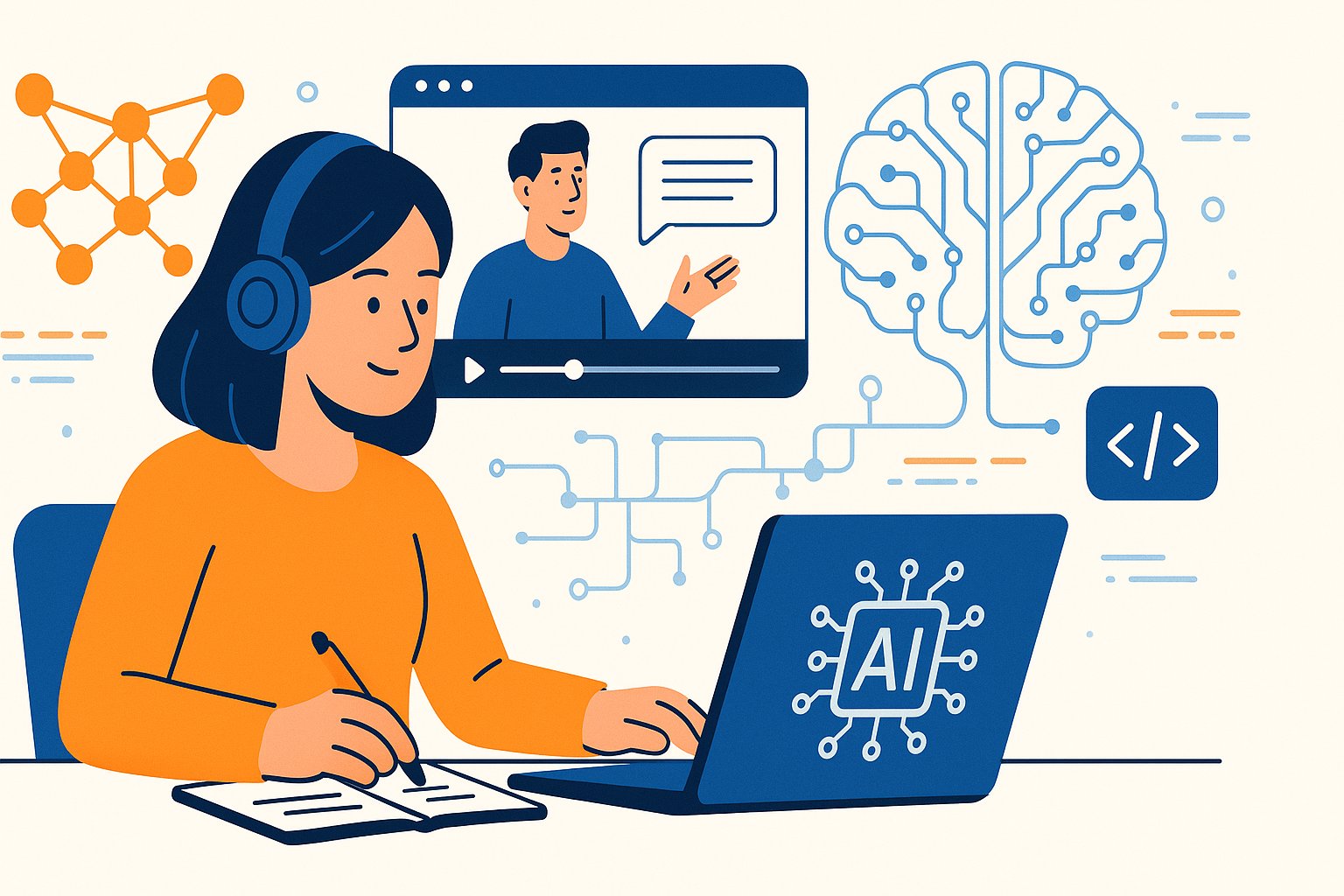18 Essential AI Courses for Software Engineers in 2025
Unlock the future with 18 must-know AI courses designed for software engineers in 2025. Gain cutting-edge skills in machine learning, deep learning, and AI ethics to stay ahead in the tech landscape. Perfect for boosting your career and innovation potential!
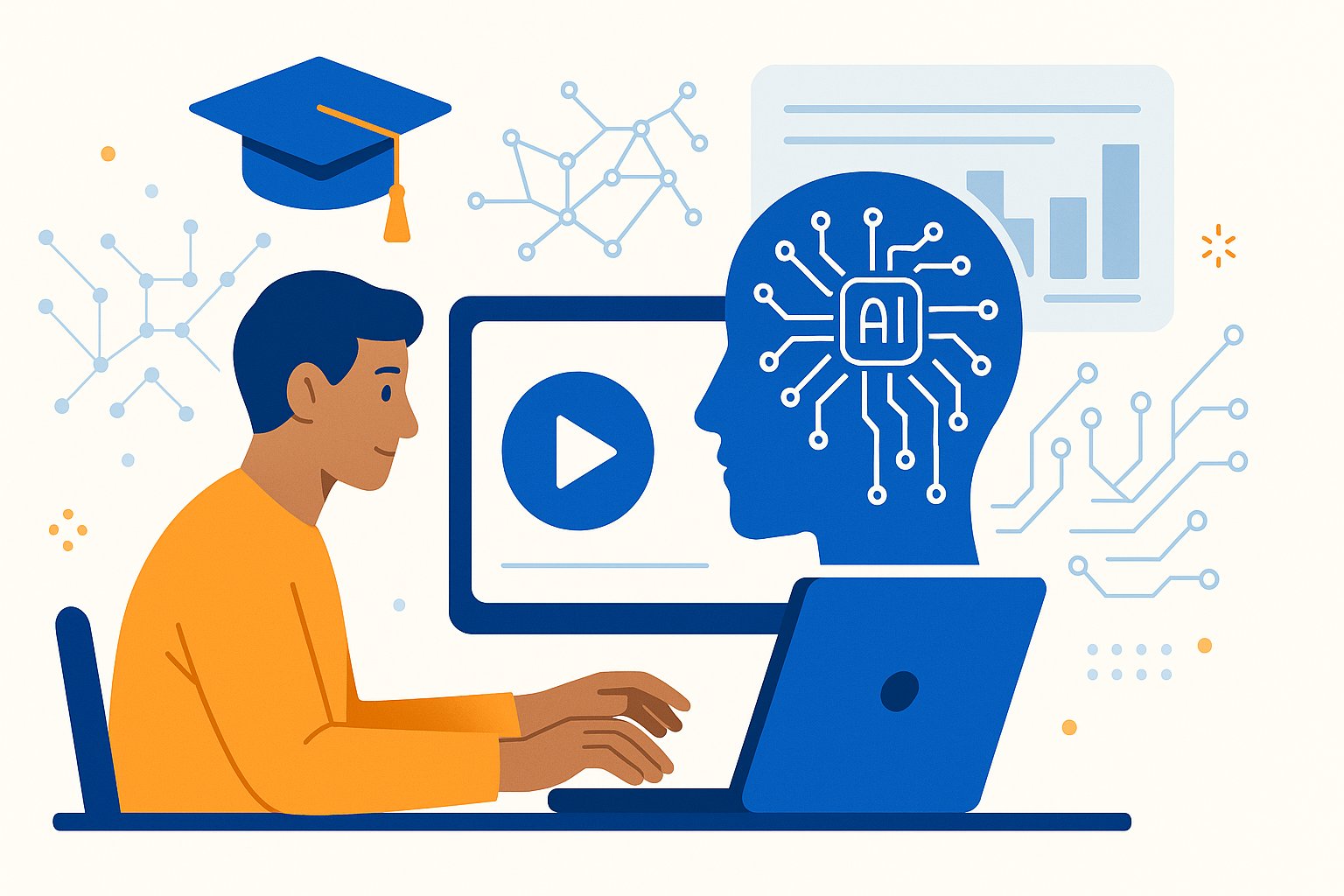
The landscape of technology is continuously evolving, and artificial intelligence (AI) stands at the forefront of this transformation. For Software Engineers, the rapid growth of AI presents both a challenge and an opportunity. As AI technologies become increasingly integral to numerous industries, the need for professionals to enhance their skills in this domain is paramount. The potential impact on jobs is significant, with AI automating tasks and enabling new ways of working. Consequently, upskilling in AI has become essential for Software Engineers aiming to stay relevant and competitive in their careers.
Why AI matters for Software Engineers today
Today, AI is not just a buzzword; it is a crucial component in the toolkit of any forward-thinking Software Engineer. The significance of AI is underscored by statistics such as the fact that 69% of businesses are already utilizing AI in some form. This trend highlights the urgent need for Software Engineers to integrate AI into their skill sets. The purpose of this article is to guide Software Engineers in identifying the best AI courses to enhance their expertise. With a detailed comparison of 18 courses, including the CompleteAI Training, this article aims to provide a comprehensive resource for those looking to expand their knowledge in AI.
The Growing Role of AI in Software Engineers
AI applications in the field of Software Engineering are diverse and impactful. From automating repetitive tasks to enhancing decision-making processes and driving personalization in software solutions, AI is reshaping workflows at every level. Automation tools powered by AI are streamlining development processes, allowing engineers to focus on more strategic tasks. Furthermore, AI-driven analytics are enabling better decision-making and personalized user experiences, thereby enhancing the overall software development lifecycle. This transformation underscores the importance of AI proficiency for Software Engineers who wish to excel in their roles.
Benefits of becoming an AI expert in Software Engineers
For Software Engineers, becoming proficient in AI offers numerous advantages. It not only enhances their technical skill set but also boosts their career prospects. AI expertise can lead to more significant responsibilities and higher remuneration. Additionally, understanding AI allows Software Engineers to contribute more effectively to projects that leverage AI technologies, thereby increasing their value within their organizations. With industries across the board seeking to implement AI solutions, Software Engineers skilled in AI are well-positioned to drive innovation and influence the future of technology.

Comparison: All AI Courses for Software Engineers (Updated Q2' 2025)
| Course Name | Provider | Price | Key Topics | Pros | Cons | Best For |
|---|---|---|---|---|---|---|
| AI for Software Engineers | CompleteAI Training | $29/month (monthly) or $8.25/month billed annually | Video Courses + Certifications, AI tools, AI news | Highest rating, Extensive course range, Daily updates, Affordable pricing | Subscription based | Software Engineers professionals |
| Artificial Intelligence Nanodegree Program | Udacity | $148.50/month or $127/month for 4-month bundle | Optimization algorithms, Bayesian networks, Minimax search | Industry-expert instructors, Hands-on projects | Requires prior Python knowledge | General learners |
| AI, Deep Learning and MLOps Courses | DeepLearning.AI | Free; $39-$99/month for Coursera or $59/month for full access | AI for Everyone, ML, MLOps, Deep Learning | Wide range, Taught by leading researcher | Pricing varies, Some courses require subscription | General learners |
| Certificate in Artificial Intelligence and Machine Learning | California Institute of Applied Technology (CIAT) | Varies; financial aid may be available | Practical AI labs, Industry frameworks | Focus on enterprise roles, Live instruction | Requires professional experience, Cost varies | General learners |
| Big Data, Artificial Intelligence and Ethics | University of California, Davis (UC Davis) via Coursera | Free to audit; payment for certificate | Big data, AI fundamentals, Ethics | Beginner-friendly, Includes ethics | Limited depth for advanced engineers | General learners |
| AI for Business Specialization | University of Pennsylvania (Wharton) via Coursera | $79 for full specialization | AI, ML, Big Data in business | Business-focused, Affordable | Less technical depth for engineers | General learners |
| CS50’s Introduction to Artificial Intelligence with Python | Harvard University | Free to audit; $299 for certificate | AI fundamentals, Machine learning with Python | Strong coding focus, Harvard credential | Time-intensive | General learners |
| Develop LLM Powered Applications with LangChain | Udemy | $12.99 (lifetime access) | LLM applications, LangChain, Python | Affordable, Practical, Updated | Requires Python knowledge | General learners |
Understanding AI Training for Software Engineers Professionals
Artificial Intelligence (AI) has become an integral part of the software engineering landscape, offering tools and technologies that enhance the efficiency of development processes and the capabilities of software solutions. This article compares several leading AI courses available for software engineering professionals, focusing on their offerings, pros, cons, and the ideal audience for each course.
Course 1: CompleteAI Training
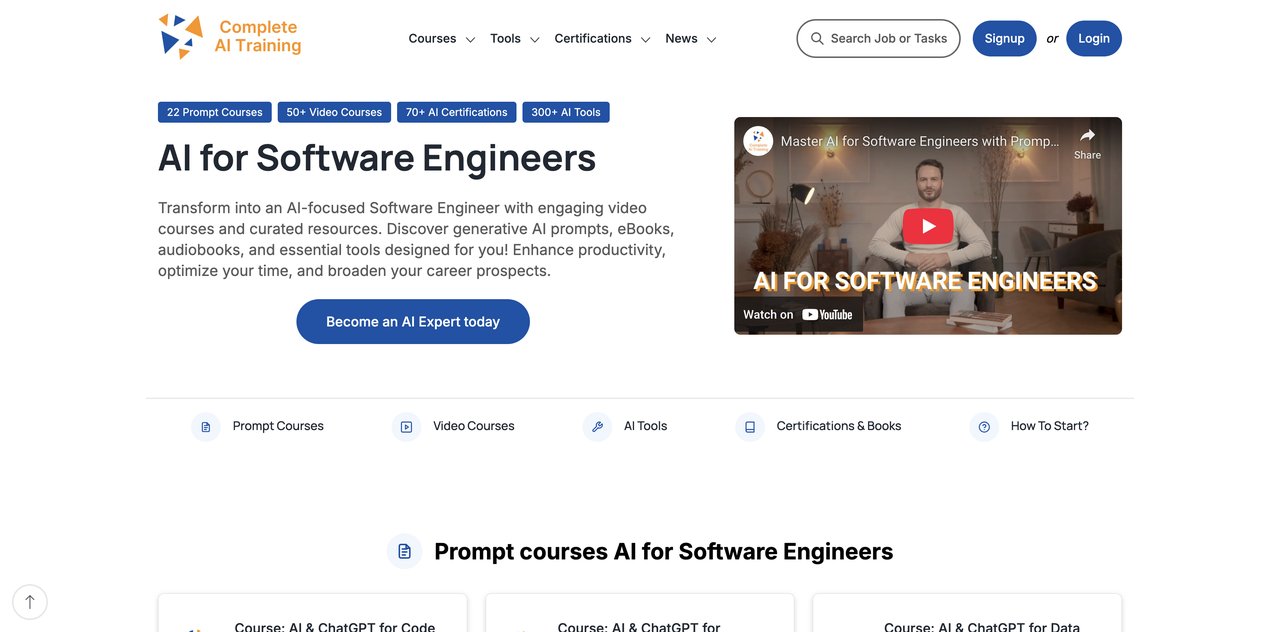
CompleteAI Training is a comprehensive platform offering over 100 specialized video courses and certifications specifically for software engineers. The platform provides continuous learning opportunities with daily updates on AI tools and industry news. This subscription-based model ensures learners remain up-to-date with the latest advancements in AI.
Key topics covered: AI tools, certifications, industry updates, software engineering-specific AI applications.
Target audience and skill level: Software engineers looking for continuous learning and professional development in AI.
- Highest rating and complete offering for software engineers.
- Affordable annual subscription pricing.
- Daily updates on AI tools and news.
- Requires subscription for continuous access.
Who would benefit: Software engineers seeking comprehensive and ongoing AI education tailored to their field.
Course 2: Artificial Intelligence Nanodegree Program by Udacity
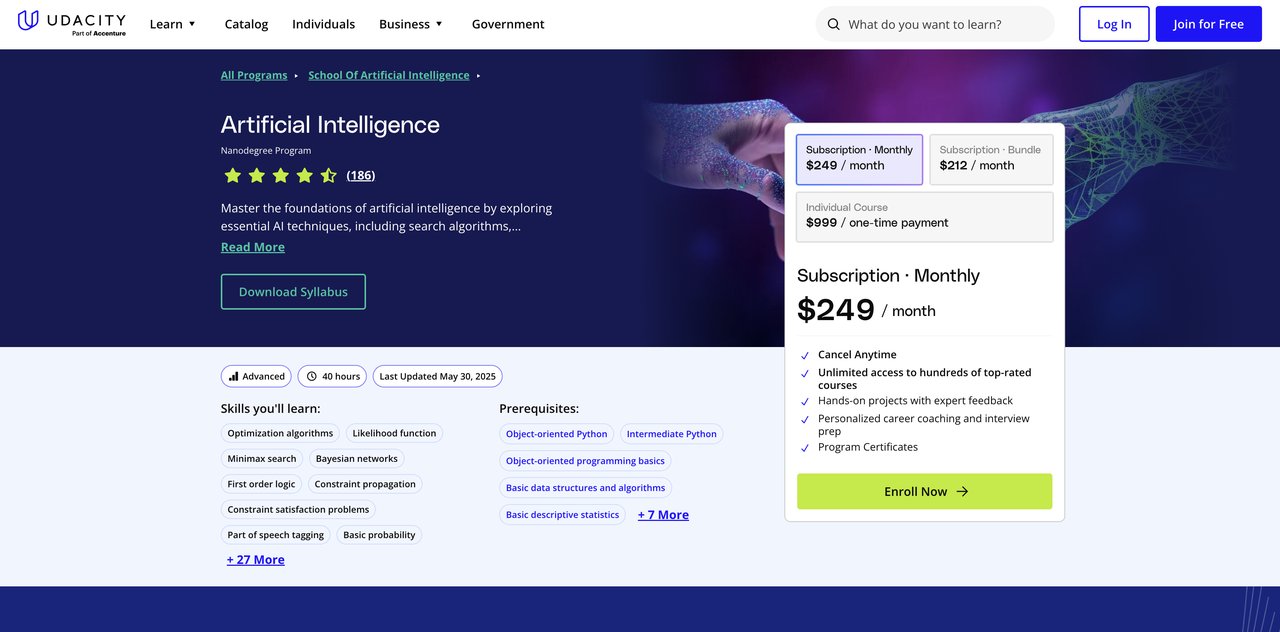
The Udacity AI Nanodegree Program offers a foundational understanding of AI concepts such as optimization algorithms and Bayesian networks, with hands-on projects to apply these skills. Taught by industry experts, the course requires prior Python programming knowledge.
Key topics covered: Optimization algorithms, Bayesian networks, hands-on projects, AI strategy development.
Target audience and skill level: Software engineers with Python experience looking to deepen their AI foundational knowledge.
- Industry-expert instructors.
- Hands-on projects for practical learning.
- Requires prior Python knowledge.
Who would benefit: Engineers with a background in Python seeking practical AI project experience.
Course 3: AI, Deep Learning and MLOps Courses by DeepLearning.AI
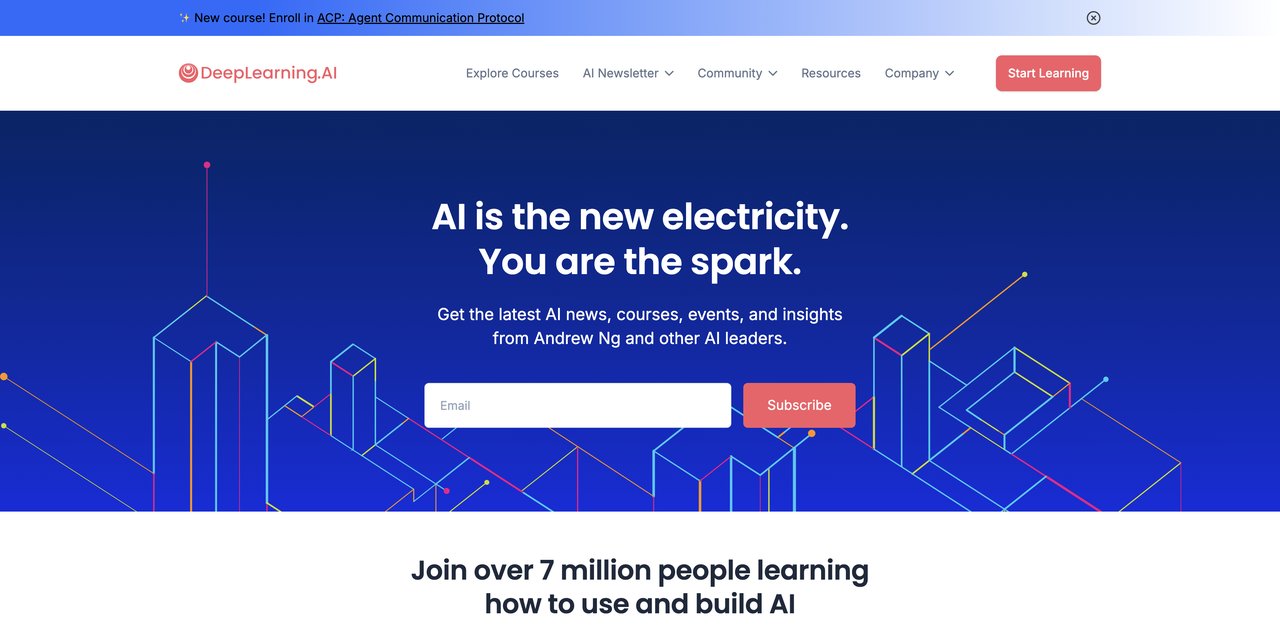
DeepLearning.AI offers a range of courses from non-technical introductions to advanced AI specializations. The courses cover machine learning, MLOps, and more, suitable for both business leaders and experienced engineers.
Key topics covered: Machine learning, MLOps, deep learning, generative AI.
Target audience and skill level: Engineers and business leaders at varying levels of AI understanding.
- Wide range of courses for different skill levels.
- Taught by a leading AI researcher.
- Pricing varies; some courses require a subscription.
Who would benefit: Individuals looking for comprehensive AI education across various topics and levels.
Course 4: Certificate in Artificial Intelligence and Machine Learning by CIAT
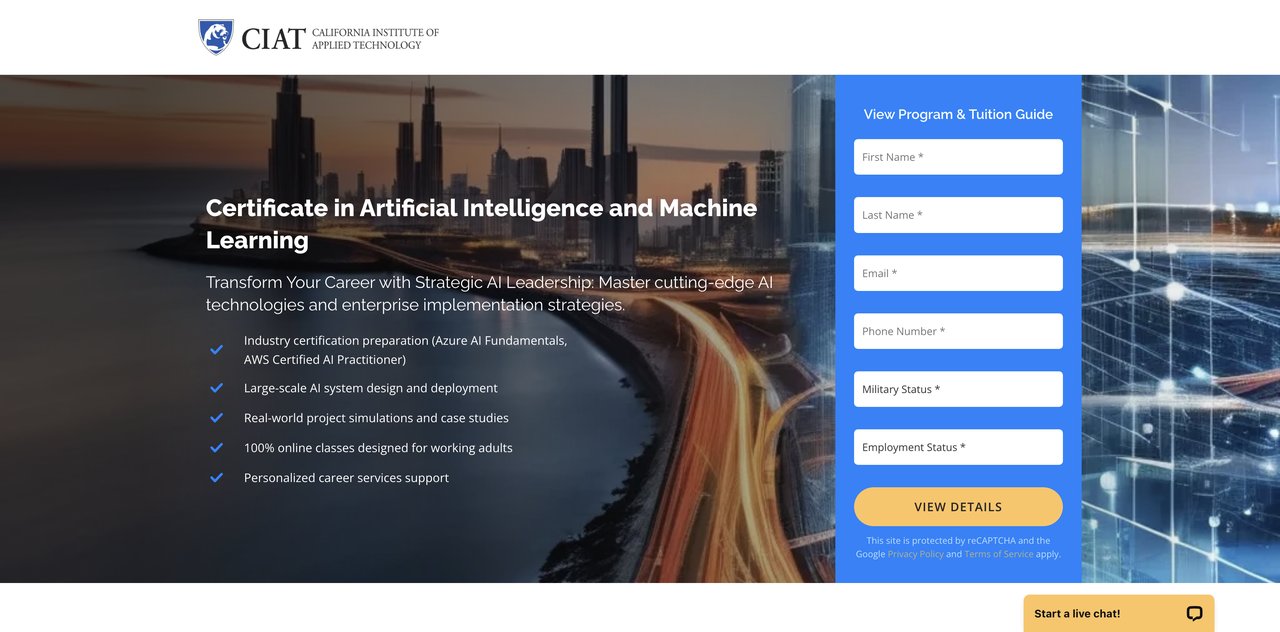
The CIAT AI and ML Certificate is designed for AI engineers aiming for senior roles. With practical labs and training in industry tools, this program is suitable for professionals with IT experience and cloud technology familiarity.
Key topics covered: Industry frameworks, AI tools, practical labs, enterprise AI roles.
Target audience and skill level: Experienced IT professionals and engineers.
- Focus on enterprise roles.
- Live instruction and practical labs.
- Requires professional experience.
Who would benefit: Engineers targeting senior AI roles in enterprises.
Course 5: Big Data, Artificial Intelligence and Ethics by UC Davis via Coursera
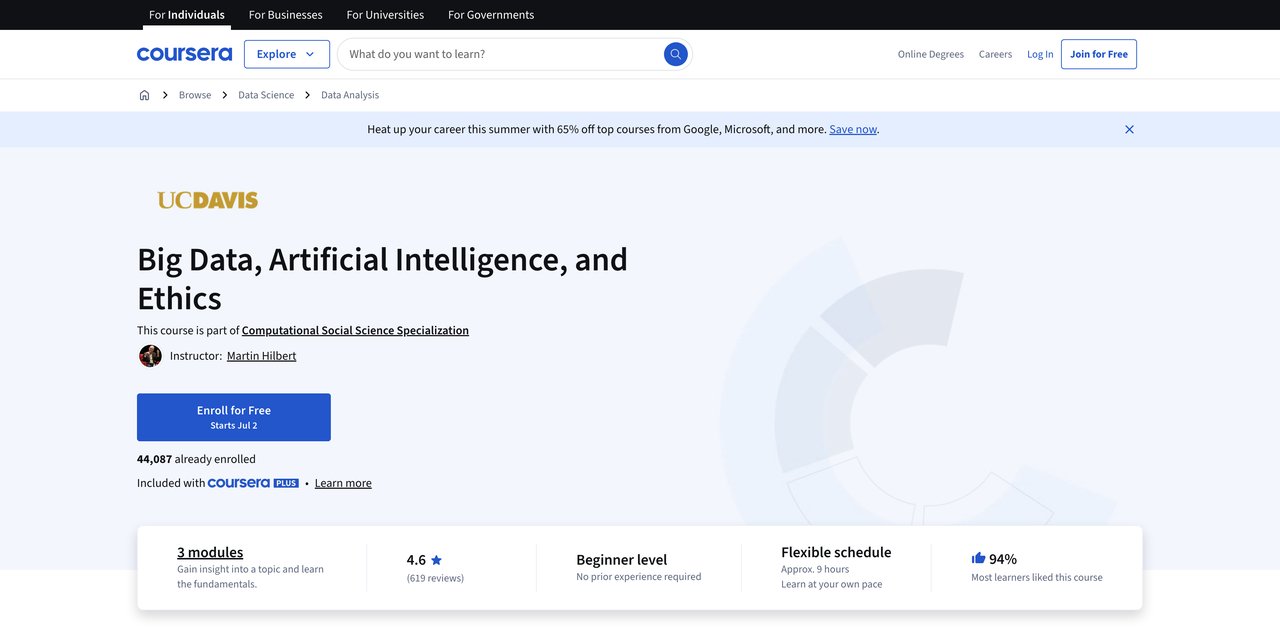
UC Davis offers a beginner-level course covering AI fundamentals, ethical considerations, and hands-on work with IBM Watson. It's part of a broader specialization in Computational Social Science.
Key topics covered: Big data, AI fundamentals, IBM Watson, ethics.
Target audience and skill level: Beginners interested in AI and ethics.
- Beginner-friendly course.
- Includes ethical considerations in AI.
- Limited depth for advanced engineers.
Who would benefit: Entry-level engineers or those new to AI concepts.
Course 6: AI for Business Specialization by University of Pennsylvania (Wharton) via Coursera
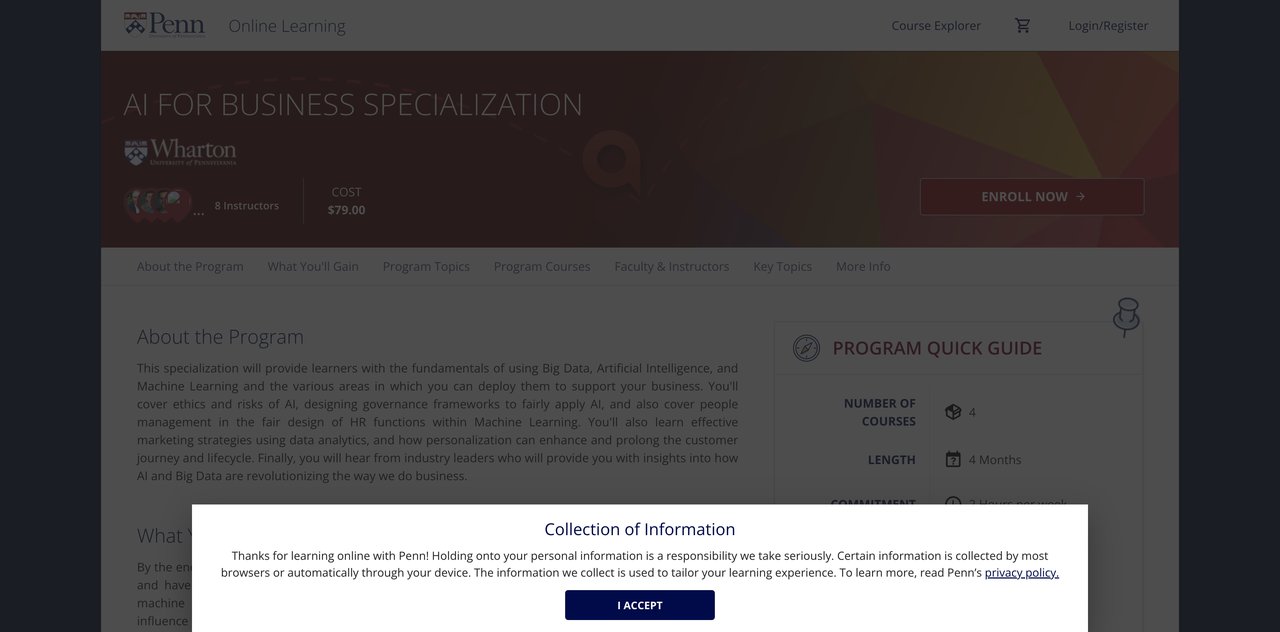
The Wharton AI Specialization focuses on AI applications in business, covering marketing, finance, and HR. It includes practical tools like TensorFlow and AutoML.
Key topics covered: AI applications in business, TensorFlow, AutoML, ethical AI.
Target audience and skill level: Business professionals and engineers interested in AI applications.
- Business-focused AI applications.
- Affordable specialization.
- Less technical depth for developers.
Who would benefit: Business professionals and engineers looking to apply AI in business contexts.
Course 7: CS50’s Introduction to Artificial Intelligence with Python by Harvard University
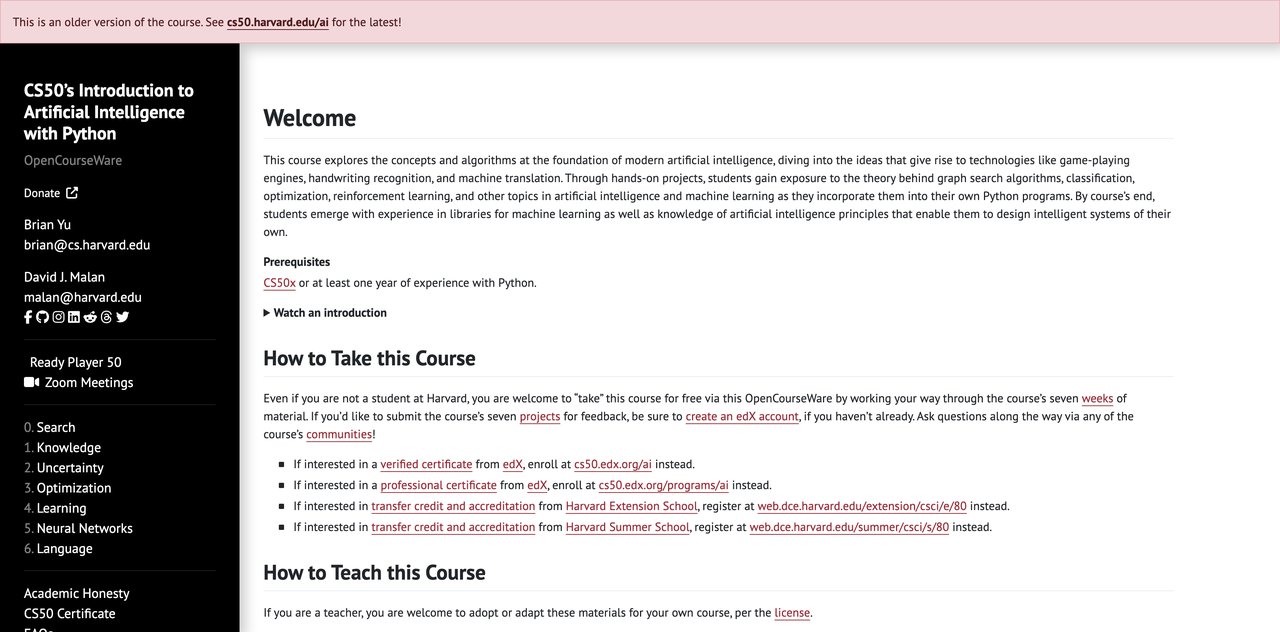
CS50’s AI Course offers an intermediate exploration of AI fundamentals using Python. It includes practical projects like game-playing engines and handwriting recognition.
Key topics covered: AI fundamentals, graph search, reinforcement learning, Python projects.
Target audience and skill level: Intermediate software engineers with Python skills.
- Strong focus on coding and practical projects.
- Harvard credential.
- Time-intensive.
Who would benefit: Engineers seeking to enhance their AI programming skills with a reputable credential.
Course 8: Andrej Karpathy’s YouTube Channel — AI & ML Education
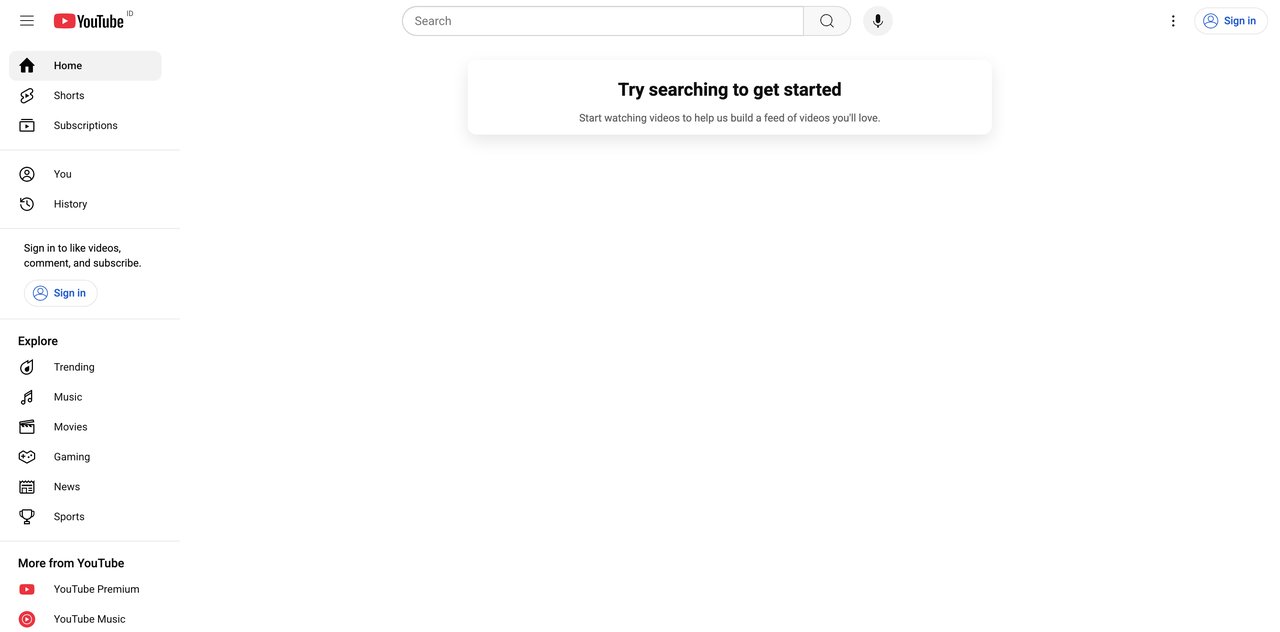
The YouTube channel by Andrej Karpathy provides free, code-focused tutorials on building GPT models and understanding LLM fundamentals. Suitable for self-directed learners, the channel lacks certification.
Key topics covered: GPT model building, tokenization, LLM fundamentals.
Target audience and skill level: Software engineers with a strong interest in deep technical content.
- Free access to expert insights.
- Deep technical content.
- No certification available.
Who would benefit: Engineers looking for in-depth, technical AI content for self-study.
Course 9: Cynthia Rudin’s YouTube Channel — Interpretable Machine Learning
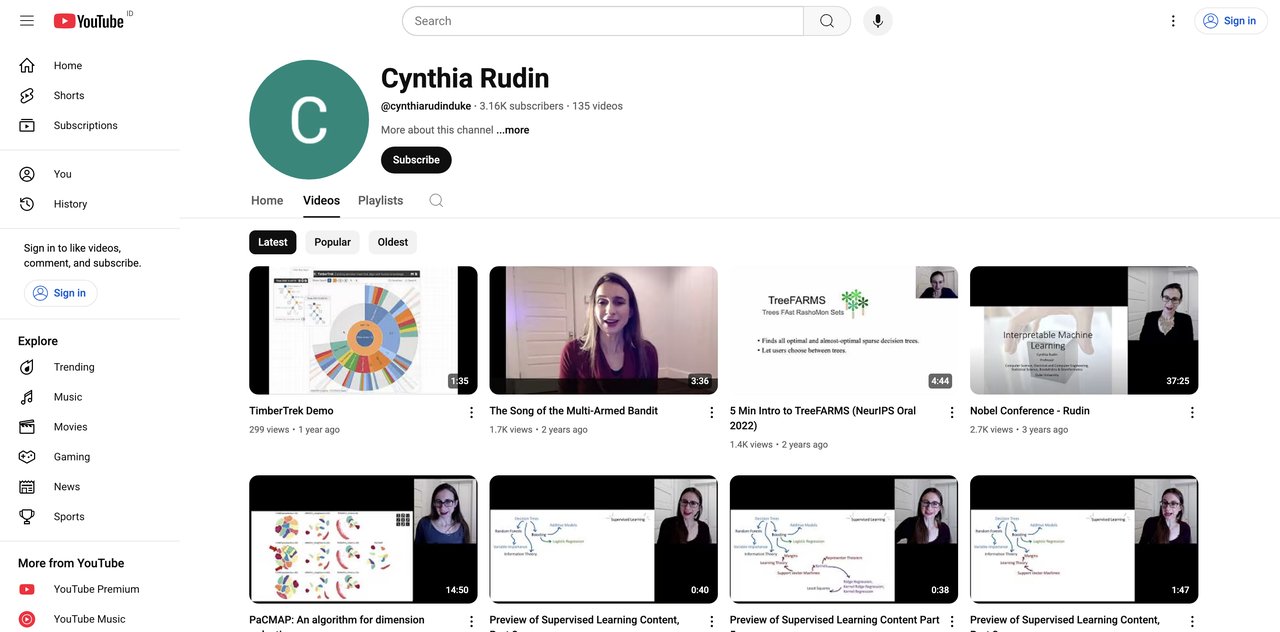
Cynthia Rudin’s channel focuses on interpretable machine learning algorithms and statistical learning theory. It offers advanced content for engineers interested in algorithmic transparency.
Key topics covered: Interpretable machine learning, statistical learning theory.
Target audience and skill level: Advanced engineers interested in theoretical AI concepts.
- Free advanced theoretical insights.
- No certification available.
Who would benefit: Engineers interested in deeper theoretical exploration of machine learning.
Course 10: Certificate Program in AI Business Strategy by Johns Hopkins University
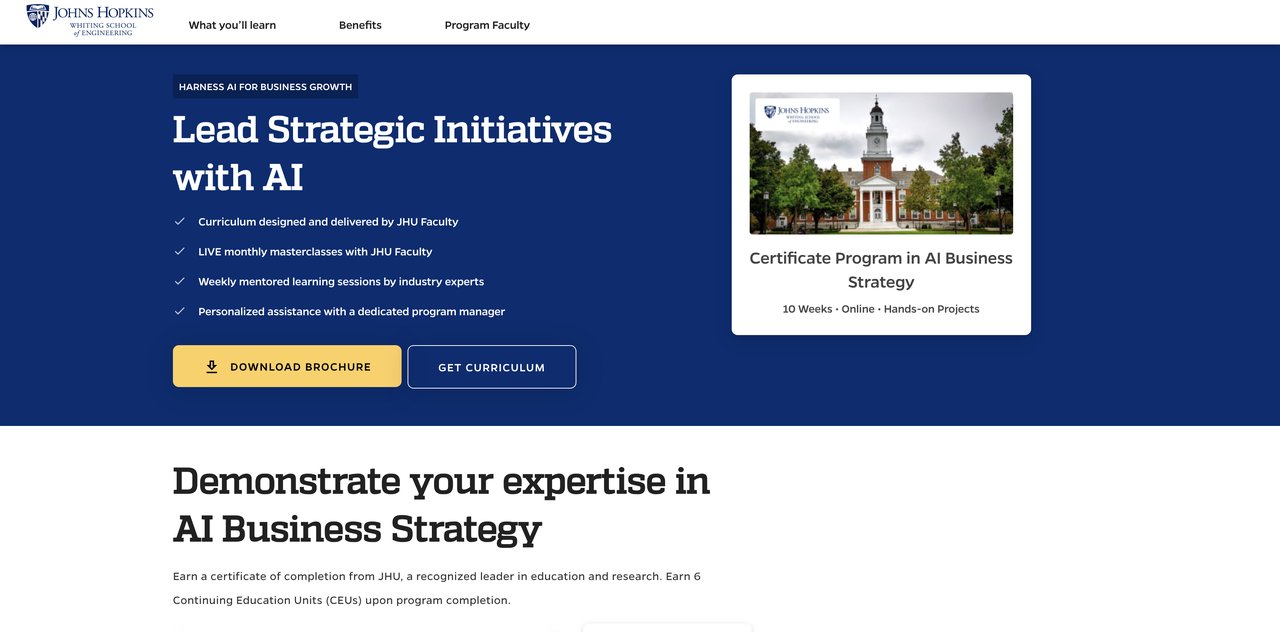
The Johns Hopkins AI Business Strategy program targets project managers and executives, focusing on AI strategy, ethics, and risk management. The program includes live masterclasses and mentorship.
Key topics covered: AI business strategy, ethical AI, risk management.
Target audience and skill level: Business leaders and tech executives.
- Strong business and strategy focus.
- Live mentorship and masterclasses.
- High price point.
Who would benefit: Executives and project managers looking to integrate AI strategy into business operations.
Course 11: Develop LLM Powered Applications with LangChain by Udemy
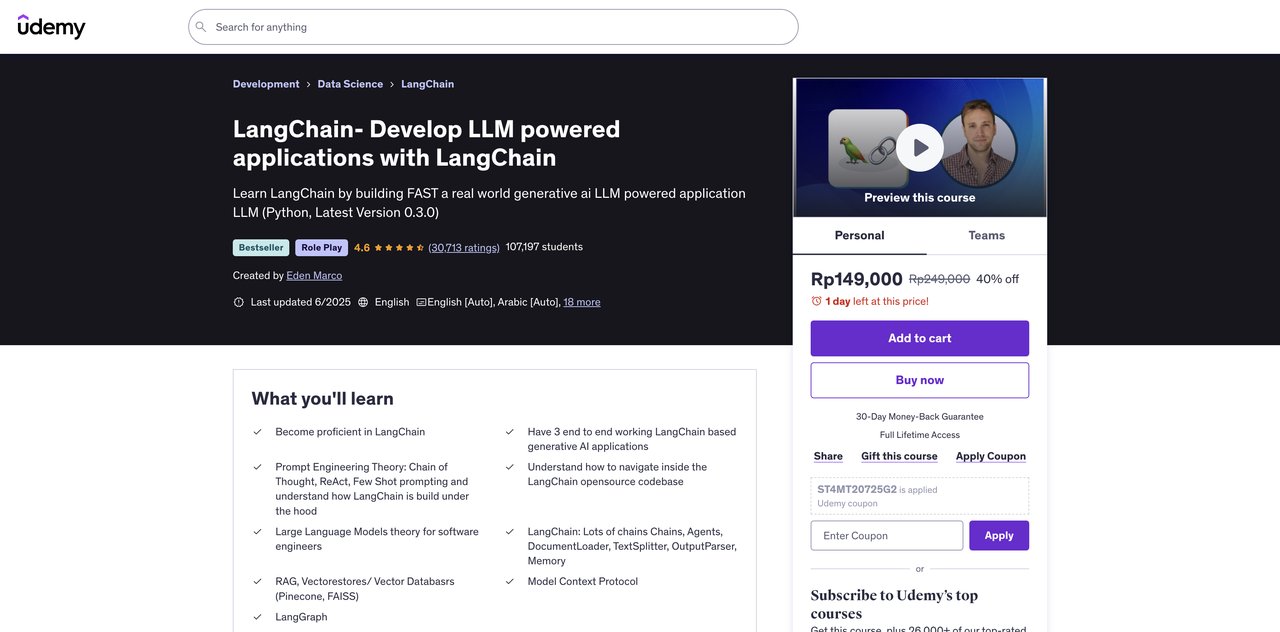
The Udemy LangChain Course teaches software engineers how to build large language model applications. It covers prompt engineering and includes practical projects.
Key topics covered: LLM applications, prompt engineering, LangChain 0.3.0.
Target audience and skill level: Engineers with Python experience.
- Affordable and practical.
- Regularly updated content.
- Requires Python knowledge.
Who would benefit: Software engineers interested in practical LLM application development.
Course 12: Introduction to Artificial Intelligence (AI) by IBM via Coursera
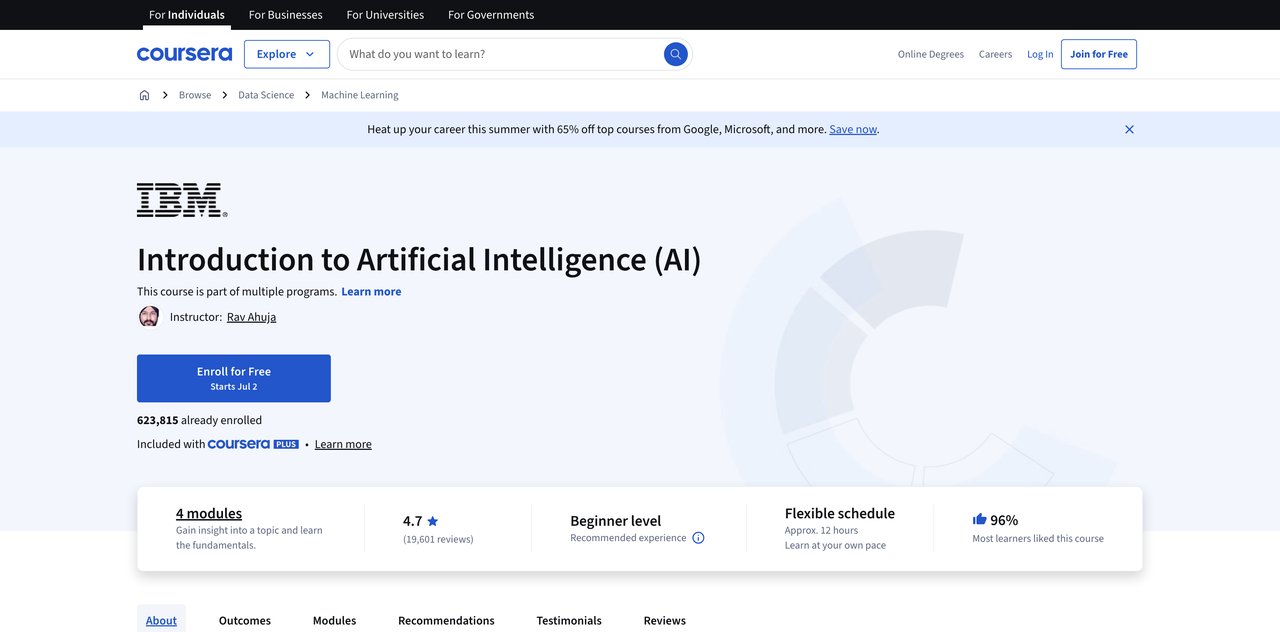
IBM’s AI Introduction course covers foundational AI concepts such as machine learning, deep learning, and data ethics. It offers practical skills relevant to software engineers.
Key topics covered: LLM, generative AI, NLP, computer vision.
Target audience and skill level: Beginners in AI.
- High rating and beginner-friendly.
- Covers a broad spectrum of AI topics.
- Subscription required for full access.
Who would benefit: Beginners wanting to understand AI technologies and their applications.
Course 13: Generative AI: Prompt Engineering Basics by IBM via Coursera
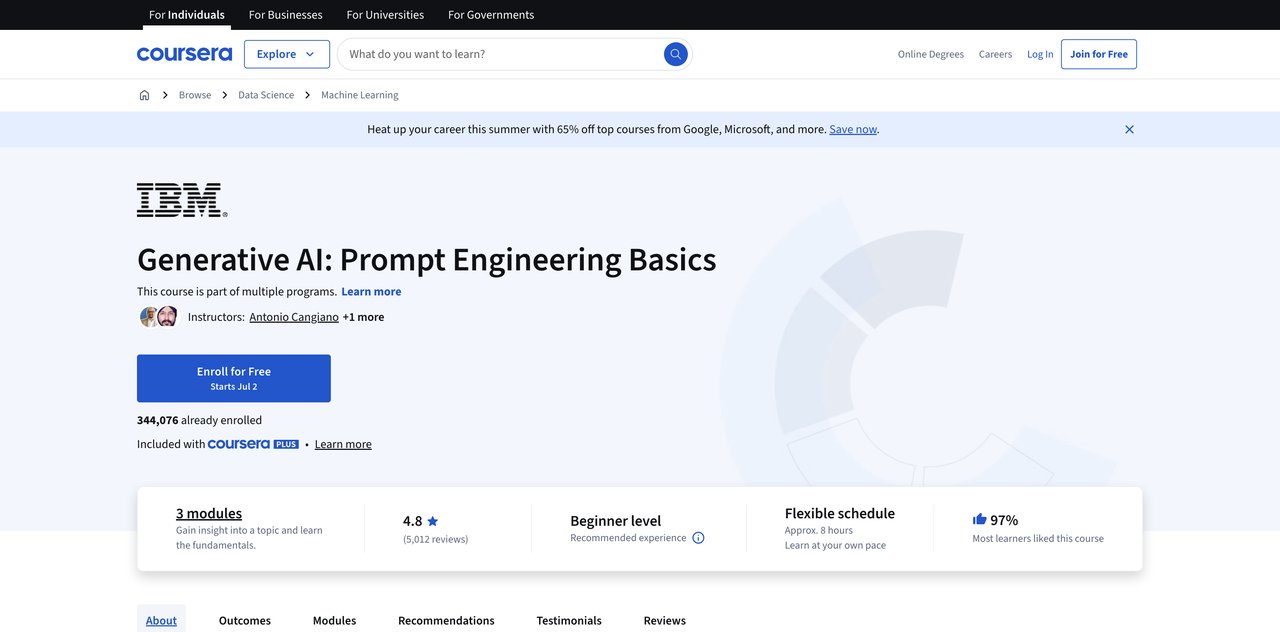
The IBM Prompt Engineering course focuses on techniques for generative AI models. It is suitable for engineers interested in leveraging AI in practical applications.
Key topics covered: Prompt design, LLM, image analysis.
Target audience and skill level: Software engineers interested in generative AI.
- High rating and practical focus.
- Subscription required for full access.
Who would benefit: Engineers interested in prompt engineering for AI applications.
Course 14: Machine Learning by DeepLearning.AI via Coursera
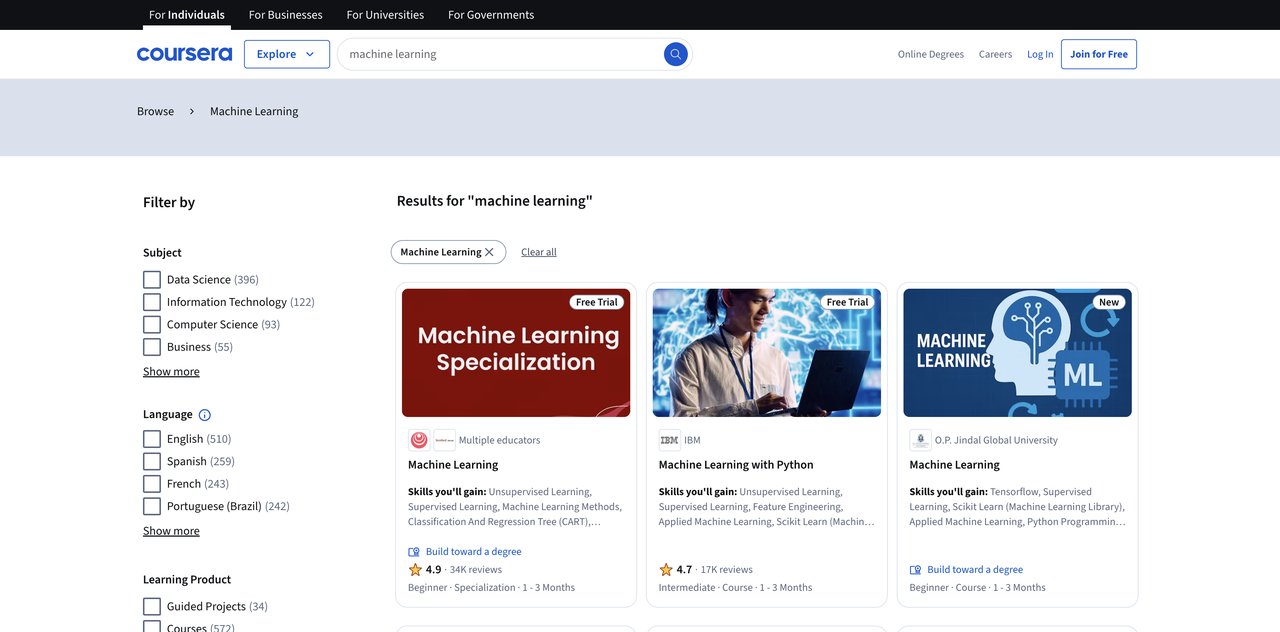
The Machine Learning course by DeepLearning.AI covers supervised and unsupervised learning, providing a comprehensive specialization for software engineers.
Key topics covered: Machine learning algorithms, decision trees, reinforcement learning.
Target audience and skill level: Engineers with basic coding and math skills.
- Very high rating and comprehensive content.
- Requires some prior knowledge for best results.
Who would benefit: Engineers looking to deepen their machine learning expertise.
Course 15: IBM AI Developer Professional Certificate by IBM via Coursera
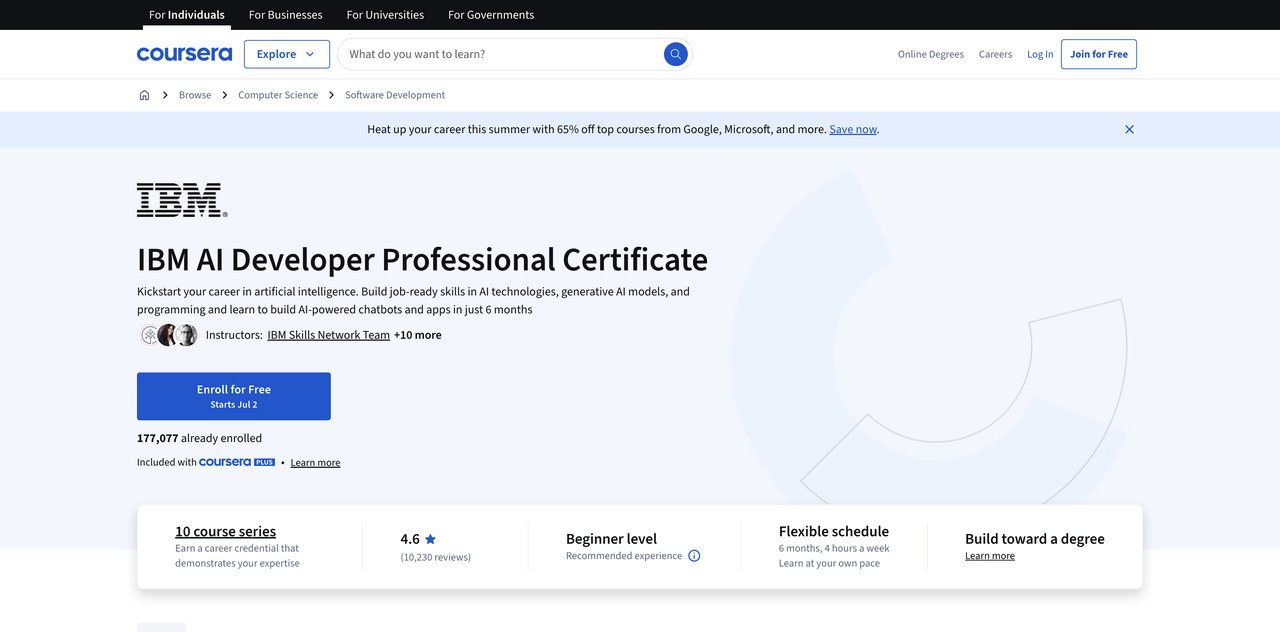
The IBM AI Developer Certificate is designed for software developers, covering the AI software development lifecycle and tools like OpenAI and Watson.
Key topics covered: AI development lifecycle, Python programming, AI tools.
Target audience and skill level: Intermediate developers with some AI knowledge.
- High rating with a practical software engineering focus.
- Intermediate duration requires time commitment.
Who would benefit: Developers interested in AI development roles.
Course 16: IBM AI Engineering Professional Certificate by IBM via Coursera
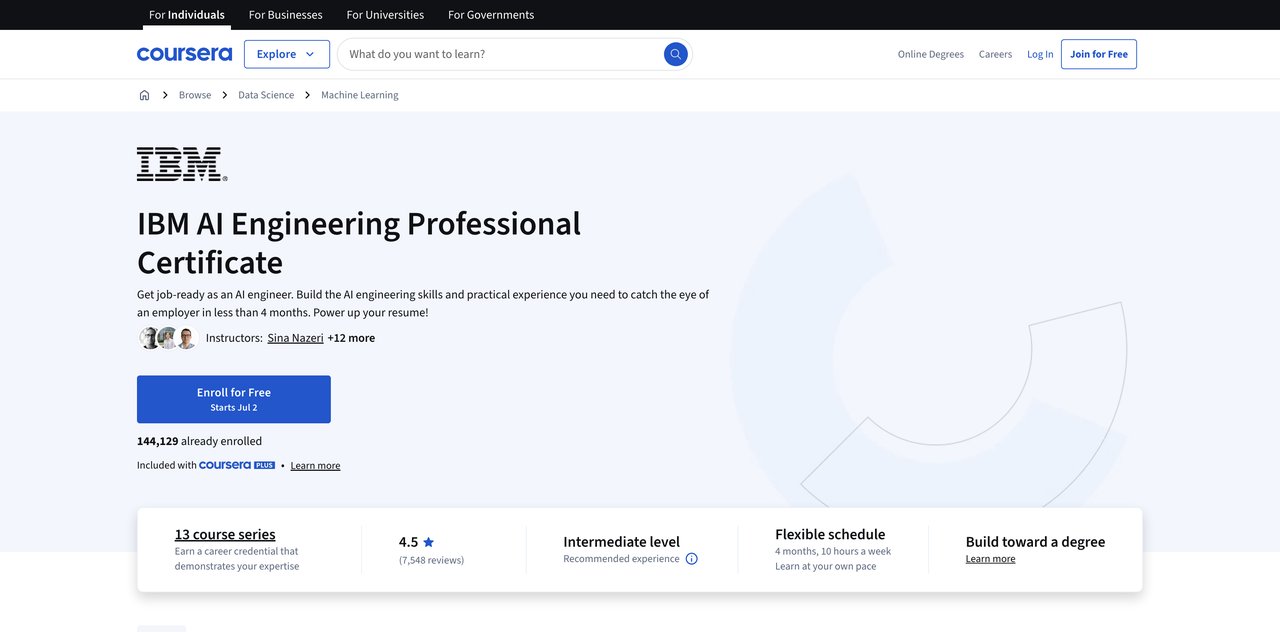
The IBM AI Engineering Certificate focuses on advanced AI engineering skills, including tools like PyTorch and TensorFlow.
Key topics covered: AI engineering tools, reinforcement learning, NLP.
Target audience and skill level: Engineers with prior AI or ML knowledge.
- Covers cutting-edge AI engineering tools.
- Requires prior knowledge and intermediate difficulty.
Who would benefit: Engineers aiming for specialization in AI engineering.
Course 17: Microsoft AI & ML Engineering Professional Certificate by Microsoft via Coursera
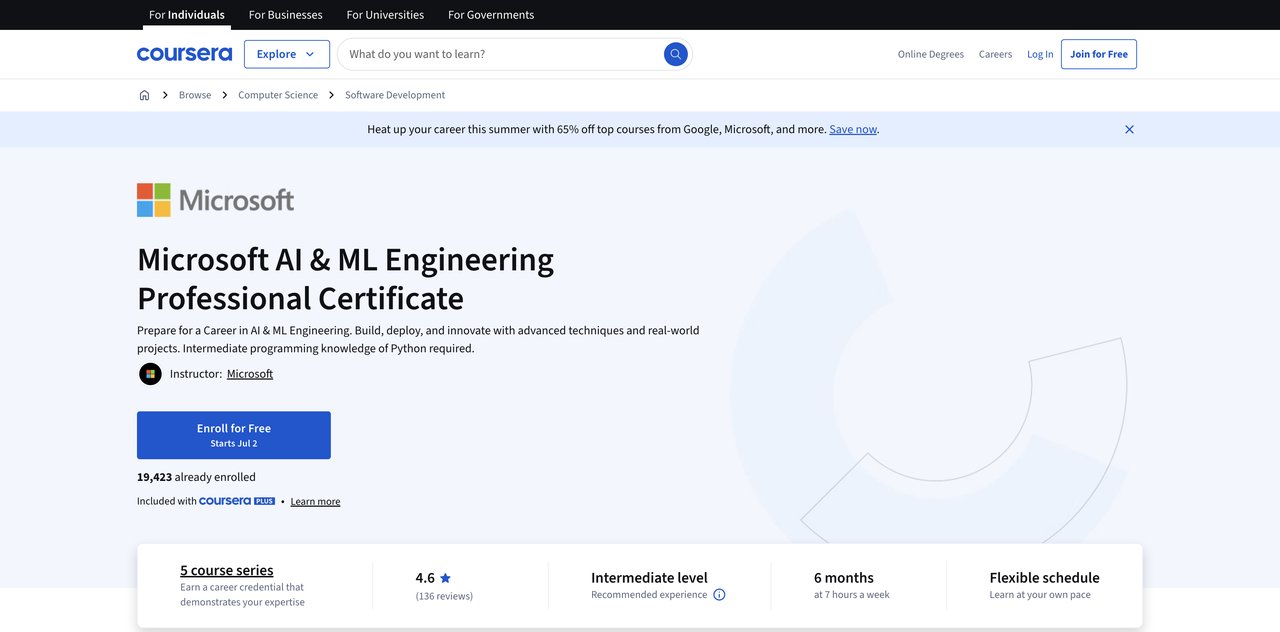
The Microsoft AI & ML Engineering Certificate teaches AI and ML engineering with a focus on Microsoft Azure and cloud integration.
Key topics covered: Microsoft Azure, MLOps, cloud infrastructure.
Target audience and skill level: Engineers working in cloud and AI environments.
- Industry-relevant skills and Azure integration.
- Intermediate level; requires prior knowledge.
Who would benefit: Engineers in cloud environments seeking AI and ML skills.
Course 18: AI Foundations for Everyone by IBM via Coursera
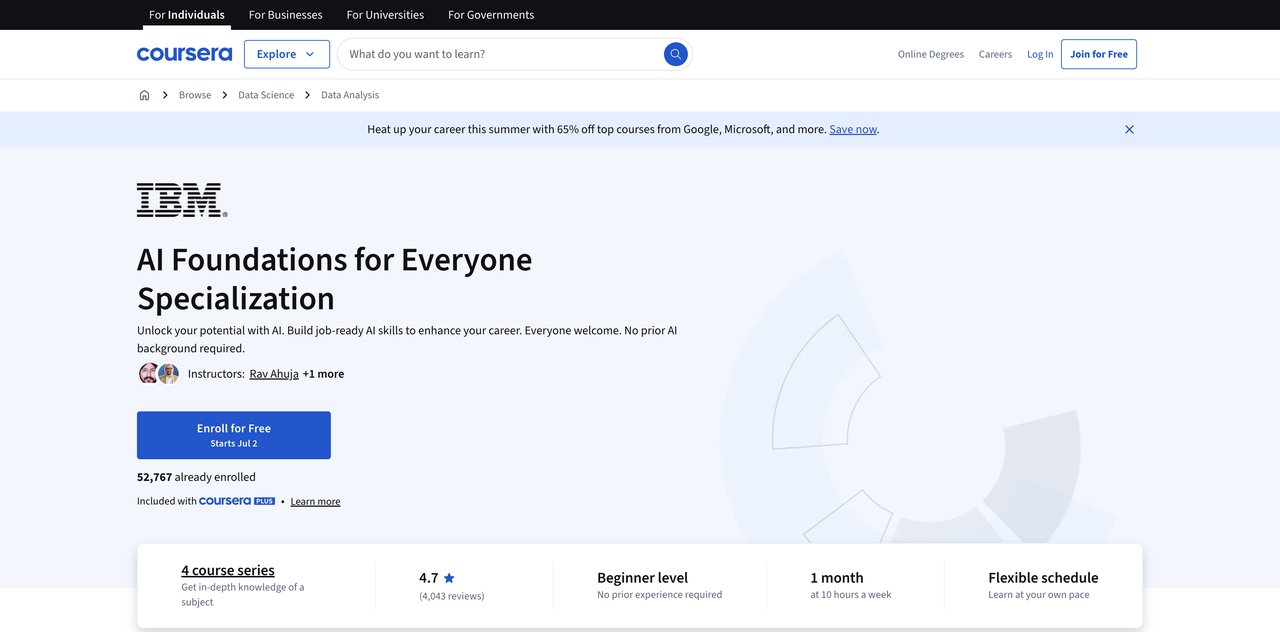
The AI Foundations for Everyone specialization introduces foundational AI concepts and applications, suitable for beginners.
Key topics covered: AI workflow management, business transformation with AI.
Target audience and skill level: Beginners exploring AI concepts.
- Beginner-friendly with practical applications.
- Less technical depth compared to advanced courses.
Who would benefit: Newcomers to AI wanting a broad overview of AI applications.
Overall Recommendations
When selecting an AI course, software engineers should consider their current skill level, learning preferences, and specific career goals. For ongoing, comprehensive education, CompleteAI Training is an excellent choice due to its extensive library and continuous updates. Engineers seeking practical project experience may prefer the Udacity Nanodegree or the Udemy LangChain course. For those focused on business applications, Wharton’s AI Specialization offers valuable insights. Advanced engineers might find value in the IBM AI Engineering Certificate or the Microsoft AI & ML Engineering Certificate for specialized skills.

